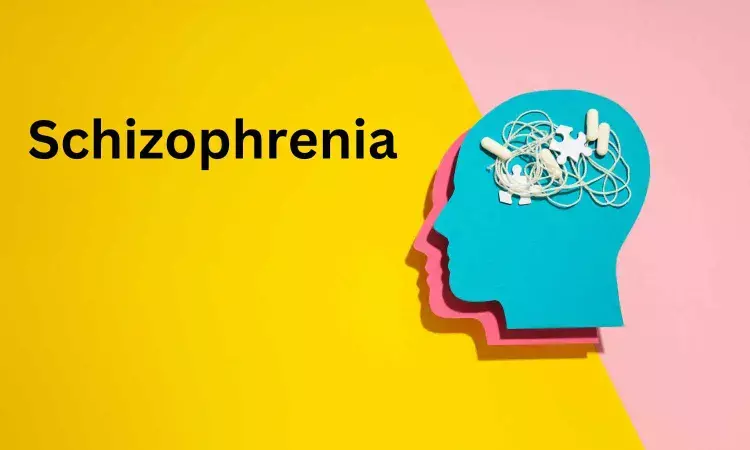- Home
- Medical news & Guidelines
- Anesthesiology
- Cardiology and CTVS
- Critical Care
- Dentistry
- Dermatology
- Diabetes and Endocrinology
- ENT
- Gastroenterology
- Medicine
- Nephrology
- Neurology
- Obstretics-Gynaecology
- Oncology
- Ophthalmology
- Orthopaedics
- Pediatrics-Neonatology
- Psychiatry
- Pulmonology
- Radiology
- Surgery
- Urology
- Laboratory Medicine
- Diet
- Nursing
- Paramedical
- Physiotherapy
- Health news
- Fact Check
- Bone Health Fact Check
- Brain Health Fact Check
- Cancer Related Fact Check
- Child Care Fact Check
- Dental and oral health fact check
- Diabetes and metabolic health fact check
- Diet and Nutrition Fact Check
- Eye and ENT Care Fact Check
- Fitness fact check
- Gut health fact check
- Heart health fact check
- Kidney health fact check
- Medical education fact check
- Men's health fact check
- Respiratory fact check
- Skin and hair care fact check
- Vaccine and Immunization fact check
- Women's health fact check
- AYUSH
- State News
- Andaman and Nicobar Islands
- Andhra Pradesh
- Arunachal Pradesh
- Assam
- Bihar
- Chandigarh
- Chattisgarh
- Dadra and Nagar Haveli
- Daman and Diu
- Delhi
- Goa
- Gujarat
- Haryana
- Himachal Pradesh
- Jammu & Kashmir
- Jharkhand
- Karnataka
- Kerala
- Ladakh
- Lakshadweep
- Madhya Pradesh
- Maharashtra
- Manipur
- Meghalaya
- Mizoram
- Nagaland
- Odisha
- Puducherry
- Punjab
- Rajasthan
- Sikkim
- Tamil Nadu
- Telangana
- Tripura
- Uttar Pradesh
- Uttrakhand
- West Bengal
- Medical Education
- Industry
AI may aid in the timely diagnosis of schizophrenia and bipolar disorder, suggests research

Schizophrenia and bipolar disorder are severe mental disorders that often manifest in early adulthood. Effective treatments exist, but they require an accurate diagnosis-something that is more challenging than one might expect.
Numerous studies have shown that several years often pass between the onset of illness and the correct diagnosis. The longer this period, the more difficult it becomes to treat the disorder. New research from Aarhus University and Aarhus University Hospital – Psychiatry suggests that artificial intelligence may help address this challenge.
“It is a difficult clinical challenge to solve, but we have given it a try, and the results of this study show that we are on the right track,” says Professor Søren Dinesen Østergaard from the Department of Clinical Medicine at Aarhus University and the Psychiatric Services of the Central Denmark Region, who leads the research team. behind the study.
Analysis of data from electronic health records
The study is based on electronic health record data from 24,449 patients who have received treatment for other-typically less severe-mental disorders than schizophrenia and bipolar disorder (e.g., anxiety and depression).
These data were used to develop a machine-learning algorithm capable of providing a qualified estimate of whether patients would be diagnosed with schizophrenia or bipolar disorder within the next five years.
“If the algorithm indicates a high likelihood of developing schizophrenia or bipolar disorder within the next five years, healthcare staff can focus their examination on symptoms associated with these disorders - potentially leading to earlier diagnosis and the initiation of targeted treatment,” Søren Dinesen Østergaard explains.
A promising start, but not quite there yet
The machine-learning algorithm analyzed the association between more than 1,000 factors from the electronic health records-including diagnoses, medication, and text from clinical notes-and potential diagnoses of schizophrenia or bipolar disorder within the subsequent five years.
The results show that for every 100 patients the algorithm labels as high risk, approximately 13 will be diagnosed with schizophrenia or bipolar disorder within the next five years. Conversely, for every 100 patients the algorithm labels as low risk, approximately 95 will not be diagnosed with schizophrenia or bipolar disorder within the next five years.
“This level of accuracy is probably not sufficient for the first version of the algorithm to be used in clinical practice, but we have a good idea of how to improve it. The key appears to be a more sophisticated analysis of the text in the clinical notes,” says Søren Dinesen Østergaard.
Specific words in the clinical notes drive the predictions
The researchers examined which components of the medical records contribute most to predicting schizophrenia and bipolar disorder. The results speak for themselves.
“The ten factors that contribute the most to the predictions all come from the clinical notes. These include words describing symptoms such as social withdrawal and auditory hallucinations, as well as words describing admissions to psychiatric hospitals -clear indicators of severe mental illness. This makes perfect clinical sense,” explains Søren Dinesen Østergaard, who believes that much more information can be extracted from the clinical notes.
The language model used in the study is relatively simple, as it is based solely on the relative frequency of individual words and does not account for the context in which these words appear. However, much more advanced language models capable of understanding the meaning of entire sentences —similar to those powering ChatGPT—are now available.
“We are optimistic that this technology can make our predictions of schizophrenia and bipolar disorder precise enough for future versions of the algorithm to support clinical practice. This is an opportunity we will definitely pursue,” says Søren Dinesen Østergaard.
Reference:
Hansen L, Bernstorff M, Enevoldsen K, et al. Predicting Diagnostic Progression to Schizophrenia or Bipolar Disorder via Machine Learning. JAMA Psychiatry. Published online February 19, 2025. doi:10.1001/jamapsychiatry.2024.4702
Dr Kamal Kant Kohli-MBBS, DTCD- a chest specialist with more than 30 years of practice and a flair for writing clinical articles, Dr Kamal Kant Kohli joined Medical Dialogues as a Chief Editor of Medical News. Besides writing articles, as an editor, he proofreads and verifies all the medical content published on Medical Dialogues including those coming from journals, studies,medical conferences,guidelines etc. Email: drkohli@medicaldialogues.in. Contact no. 011-43720751


